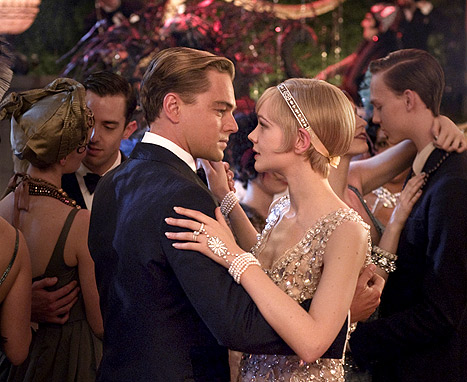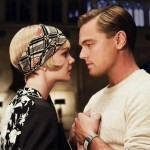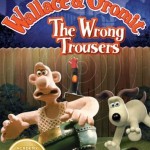 The story of the enigmatic and elusive Gatsby is really a story about two people.
The story of the enigmatic and elusive Gatsby is really a story about two people.
The thing the new adaptation by Baz Luhrmann taught me is that Daisy Buchanan is not one of them.
I have read the iconic novel by F. Scott Fitzgerald several times: First compulsarily in high school, again under duress in college. I picked it up in my 20s as I reread the literature I had read or skimmed in school for pleasure, as I enjoyed the freedom of young motherhood to feed my mind as babies were napping or playing. And I read it again in preparation for this movie release.
But I never understood it until I saw this film.
That’s a bold statement and I fully make apologies to the teachers and professors who nimbly tried to cram knowledge and understanding into my juvenile brain.
We meet Gatsby through the eyes of Nick Carraway (Tobey Maguire), a frustrated writer caught up in the sparkle and frenetic activity of the 1920s. Determined to make his fortune in the booming stock market, he rents a ramshackle cottage among the giant mansions of the roaring 20s on Long Island. His neighbor, a man called Gatsby, gives wild parties sparkling with the furious, frantic fun of the era, parties at which he rarely appears.
When Carraway’s relation to Daisy Buchanan (Carey Mulligan) becomes known to Gatsby, however, he is drawn into the very heart of Gatsby’s quest: A determination to recover a lost love. Carraway becomes an accomplice to the affair between Daisy and Gatsby, as well as witness to Daisy’s husband (Joel Edgerton) in his trysts.
Baz Luhrmann is known for his choreographed and dreamily stylized films: Moulin Rouge. Australia. And 1996’s Romeo+Juliet, starring a much younger Leo. While Luhrmann brings razzlemadaz and jazz to his 1920s vision, the movie never crosses over into another world like Moulin Rouge or Romeo + Juliet. Offered in 3D, some of the effects are wiz-bang snow falling in your lap or shirts falling on your head.
But, ultimately, it’s the characters and the story that grab the attention. Leonardo DiCaprio brings his trademark intensity to both Gatsby’s passion for Daisy and brief flashes of temper. It’s easy to believe DiCaprio’s Gatsby a man of layers and secrets, smiling eyes on the surface with danger underneath.
Carey Mulligan’s Daisy has her secrets as well. Gatsby’s secrets are factual: Where does he get his money? Where was he born? His motives, however, are focused and clear. Daisy, on the other hand, has a well-known history but her motives are murky at best. Mulligan brings this to life so well that at the conclusion, you feel you ought to have known all along.
The real story, though, is Nick Carraway. Drawn to the cynicism and flash of the wealthy a-moral set he travels with, he looks for solid ground on which to stand.
Gatsby is the ultimate absolutist, a priest married to the god of love.
His truth is simple: He feels married to Daisy. What more needs to be said?
Our age is equally cynical as the 1920s portrayed in Fitzgerald’s works. Perhaps all ages are, but it feels particularly fresh at a time when license is given nearly any relational arrangement and yet people yearn for and lose faith in love itself. All the cocktails and jazz in the world can’t fill the hole left by losing faith in love.
Luhrmann underlines this connection with the present with a fascinating score by Jay-Z that blends hip-hop and R&B with jazz for a powerful effect. The dresses flash, the music pounds, the parties of the past merge with the parties of the present.
Lurhmann’s Gatsby is the Fitzgerald adaptation we needed. It fits now. We will see if the movie stands the test of time as the novel has.












